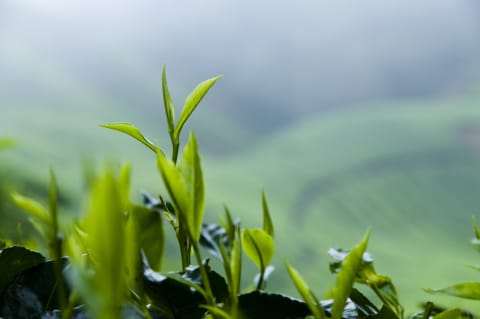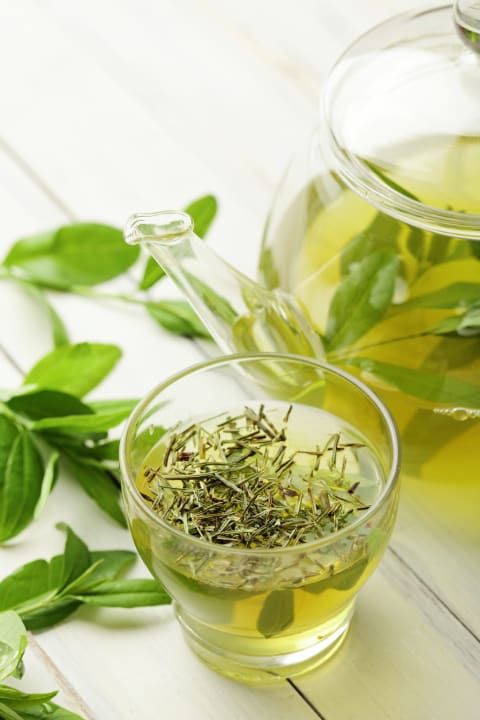“What determines whether a tea is green, black, white, or oolong depends entirely on the degree of processing that the leaves of the Camellia sinensis plant undergo after they’ve been harvested,” says Jonny Bowden, Ph.D., in The 150 Healthiest Foods on Earth. “Here’s the short summary: Black tea is fully fermented; oolong tea is partially fermented; green tea is not fermented at all but pan-fried and dried; and white tea is barely processed.” Herbal tea is made from other leaves, roots, and fruits and are not made from Camelia sinensis, which also means they are generally caffeine-free. Traditional Chinese medicine and ayurvedic practitioners have long used tea to improve digestion, accelerate wound healing, stabilize blood sugar, improve heart health, and boost mental function. And modern research shows regularly drinking tea can benefit various conditions, including type 2 diabetes, obesity3, mood disorders, and even some cancers4. That means you want to be aware of where your tea is grown, how manufacturers process and package it, and even what kind of tea bags they use. China is the world’s largest tea producer, with 8 million tea growers. Unfortunately, they are also the world’s largest pesticide user. Manufacturers don’t usually wash tea leaves before they’re bagged or packaged, so if the plants are doused with pesticides, they will infuse directly into your cup. On top of pesticides, teas can also contain artificial colorings, flavorings, and genetically modified ingredients (GMOs). In one investigation, researchers at Greenpeace China found all tea samples from China tested positive for at least three kinds of pesticides, with one-third containing up to 29 different pesticides (many of them illegal). Tea plants naturally accumulate fluoride and other heavy metals including lead, aluminum, and arsenic. Because tea grows in acidic soils, an even higher uptake of these metals can accumulate. Fluoride toxicity can result5 in a variety of health problems such as joint pain, muscle weakness, osteoporosis, brittle teeth, kidney problems, and even cancer. Among its problems, aluminum can be associated6 with Alzheimer’s disease. Tea bags carry their own problems. Most paper tea bags are treated with epichlorohydrin, a known carcinogen. Silky tea bags are made from plastics like nylon or polypropylene that are unstable in hot water. Yes, bagged tea is more convenient, but consider loose-leaf teas instead. I’ll go back to what I said before: The right teas are perfectly healthy, and you should drink as many varieties as possible. Equipped with a little knowledge, you can make the most-informed decisions about choosing the right ones. Use these seven strategies to make the most informed decision possible:




